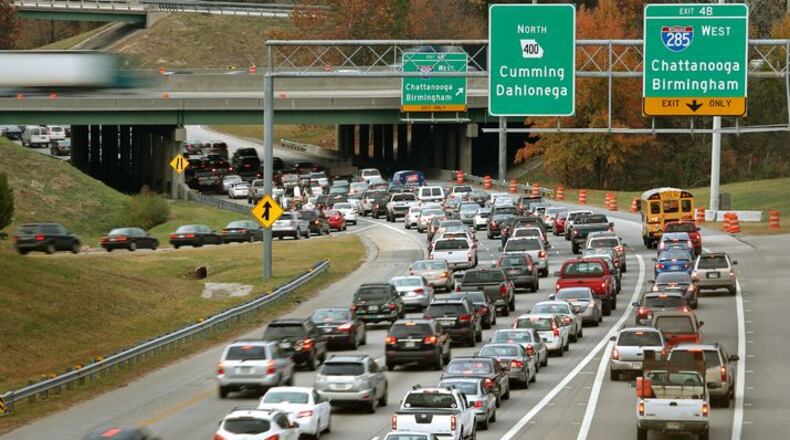One of the most significant things about the House transportation bill -- which cleared its committee in a substitute form Monday -- is its acknowledgment of a state role in funding mass transit. This is a historic step, not only for what's in the bill but for the way key legislators have been talking about it, from Lt. Gov. Casey Cagle to Speaker David Ralston and House Transportation Chairman Jay Roberts (R-Long Way From Metro Atlanta).
And yet there's a refrain from transit advocates that it's not enough. They make some good points but also offer few solutions that aren't laughably unrealistic.
A prime example of the laughable latter can be found on the Opinion pages of today's AJC , although it's hardly the first time this argument has surfaced in our paper or elsewhere. The idea: Devote some of the state's motor-fuel revenues to transit.
This reflects about as much realism as transit advocates' opposition to the 2012 T-SPLOST in metro Atlanta on the grounds that putting half the money from that tax toward transit would have been too little. It is a dead-end distraction.
The state constitution clearly states motor-fuel tax revenues are to be used for "providing and maintaining an adequate system of public roads and bridges in this state." One suggestion by the author of the above-linked piece is a constitutional amendment to change this, which is perhaps the unlikeliest idea voiced during this debate. While a growing proportion of Georgians may be warming to the idea of funding transit, it's highly unlikely a majority (to say nothing of the two-thirds majorities required in the Legislature for an amendment) would choose to fund transit from gas-tax revenues.
That's in large part because roads and bridges are already underfunded. Transit advocates point to the "fourth penny" of state sales tax, which has been diverted from transportation since its inception, but that diversion is part of the reason the system is underfunded. While the fourth penny is wholly inadequate to filling the funding gap -- it brings about $180 million a year, or about two-thirds of the funding shortage for repair and replacement of state bridges alone -- it is an essential part of filling the funding gap. As things are shaping up, legislators will merely be putting the state on a footing to get our current roads and bridges up to par. (That includes not only repairing bridges and repaving roads, but expanding and updating key routes and interchanges to reflect the traffic loads they already bear.) In other words, every bit of motor-fuel revenue is needed for our current roads and bridges without even broaching the topic of transit.
Transit advocates' time would be far better spent seeking a different revenue stream. The House bill already indicates money from a new fee on alternative-fuel vehicles is to go toward transit. That's a good place to start, and additional funding can (and should) grow from there. Another idea that's more realistic than seeking an amendment or continued diversion of gas-tax revenues from roads and bridges also appears in our Opinion pages today : Expand the footprint of counties that can join MARTA. A 1 percent sales tax for counties that participate in the MARTA system remains the best way to fund transit. The more counties that participate in MARTA (or which build their own systems, a la Cobb and Gwinnett), the more support there will be at the state level for increasing transit funding, albeit from something other than gas-tax revenues that are already more than spoken for.
About the Author





